07 Mar Natural Sugar Substitutes are the Best Way to Avoid Disease
Written by, Dara Wilson
Do dietary sugars and natural sugar substitutes help lower risk of serious health concerns such as heart disease? According to various research and clinical trials, the answer is yes.
It comes as no surprise that diets high in added sugars (table sugar and high fructose corn syrup) vastly increase a person’s risk for cardiovascular disease (CVD), fatty liver disease (FLD), diabetes, and more.
Let’s learn why sugar substitutes could be better for people with diabetes and certain diseases, some cancers, as well as people at risk.
Dirty Truths of Sugars
Natural sugars are found in whole foods with carbohydrates. Eating natural sugars from whole foods is healthier than digesting processed sugars because these foods also have high amounts of antioxidants, fiber, vitamins, minerals, and other essential nutrients such as amino acids. However, even whole foods containing natural sugars can lead to chronic health risks when over consumed. Just like the old saying states, the key to a healthy body is to consume everything in moderation.
One of the key differences between naturally-occuring sugars and processed sugars is how the human body reacts. Whole foods are digested slowly, allowing the sugar to act as an energy supply for your cells in contrast to refined sugars which are processed faster. This quick processing leads to higher blood pressure, chronic inflammation of organs, and eventually chronic diseases and conditions.
Here are sources of natural sugars.
- Fruits and vegetables contain fructose (fruit sugar).
- Grains hold maltose (malt sugar).
- Dairy has lactose (milk sugar).
- Sucrose (table sugar) is in many fruits, but only some vegetables.
- Glucose (blood sugar) is in mostly all plant foods.
However, high amounts of sugar, even natural sugars can burden the liver. Without digging too deep into this statement, here are a few examples illustrating what we mean. Pineapple offers multiple health benefits such as aiding in digestion and helping the body’s fight against common colds, but it’s not recommended to eat an entire pineapple every day—even if battling a cold—due to the elevated level of natural sugars which can counter the positives with negative effects on the body. Same goes for nutritional whole grains like quinoa. Although considered an excellent source for fiber and bone-strengthening nutrients such as magnesium, too much of a good thing—and sugars—can lead to chronic conditions.
- One 2014 Harvard study found an association between a high-sugar diet and a greater risk of dying from heart disease.
- The study was completed over a course of 15 years.
- People with 17% to 21% of their calories from added sugar had a 38% higher risk of dying from cardiovascular disease compared to those with only 8% of their calories as added sugar.
- Another compilation of research studies showed the negative effects of refined sugars and starches (processed foods).
- Drinking SSBs such as soda and fruit juice and eating refined carbohydrates resulted in a higher risk of CHD (chronic heart disease).
- Diets rich in complex carbohydrates (whole grains, fruits, vegetables) showed a reduced risk of CHD and other conditions.
Natural Sugar Substitutes
Specifically, the body does not process natural sugar alcohols the same way it does regular table sugar, refined sugars, and artificial sweeteners. Unlike natural sweeteners, refined sugars and artificial sugar alternatives are processed and can severely raise blood sugar levels.
To start, sugar alcohols can benefit your diet in different ways, although everyone is different. Sugar alcohols are types of carbohydrates with a similar chemical structure to regular sugar.
- Do not spike blood sugar levels like table sugar
- Contain half the calories per gram as regular sugar
- Don’t contribute to as much tooth decay as regular sugar
- Lower glycemic index than other natural sugar alternatives
For example, sugar alcohols such as erythritol (a sugar alternative derived from naturally occurring melon sugars) have become very popular in the bakery and confectionary world.
Natural sugar substitutes simply help with weight management, but as with everything, should be consumed in moderation.
While sugar alcohols are beneficial, some people feel gastrointestinal side effects such as gas and bloating. Again, everyone’s body and digestive system are different, so start with small quantities and see what works best for you.
Most importantly, sugar alternatives should not be eaten as a substitute for fruits, vegetables, and whole grains. If you are at risk for diabetes and chronic disease, always ask your doctor before consuming sugar substitutes.
RED Chocolate’s Bottomline
We are not here to trick anyone.
RED is not a healthy food and should not be looked at as a heart healthy snack.
However, RED is a smarter chocolate option. Our Master Chocolatiers have perfected the RED recipe. We’re the only indulgent, European chocolate with no added/refined sugars, fewer calories, and less fat than other leading chocolate brands—but you wouldn’t know it by tasting it. In fact, RED has been proven continuously as the best choice of no sugar added chocolate in today’s confectionary market by reviews, bloggers, news outlets, and more. Loyal customers have coined RED as the “only true low-calorie chocolate bar” with no strange after-taste that is experienced in some “healthier” alternatives.
If you’re going to treat your sweet tooth, treat it right, with RED.






Pingback:RED Chocolate-Covered Pineapple is The Ultimate Summer Treat -
Posted at 10:09h, 22 July[…] works towards your wellness goals, and not one that is stuffed with sugar. Quality chocolate with no added sugar is possible with RED. Keto and Weight-Watchers friendly, gluten-free, Kosher, and non-GMO, RED has […]
Pingback:RED’s Delicious Lavender Lemon Chocolate Cake for Spring Holidays -
Posted at 16:20h, 11 April[…] 1 2/3 cup granulated sugar (can be substituted for natural sugar substitutes) […]